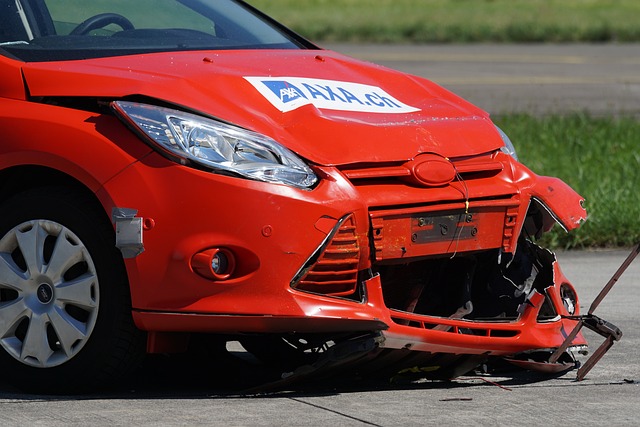Understanding your vehicle's characteristics, from age and make to daily use cases, is crucial for securing appropriate Car Insurance. Tailoring coverage options like liability, collision, comprehensive, and personal injury protection (PIP) ensures you're prepared for unexpected events. Customizing deductibles based on risk profiles and driving histories manages costs effectively. Avoiding pitfalls by comparing various plans tailored to individual needs prevents financial strain post-accidents. Staying informed about Car Insurance trends, including new technologies and consumer preferences, is essential for making informed coverage decisions in today's dynamic automotive landscape.
Looking for comprehensive car coverage that suits your unique vehicle needs? Understanding your options can be complex. This guide breaks down the essentials of car insurance, from recognizing your vehicle’s specific requirements to navigating different policy types and deductibles. By exploring custom protections, comparing quotes, and staying updated on trends, you’ll make informed decisions ensuring optimal protection for your peace of mind on the road. Discover the key strategies for securing the best car insurance policy tailored to your needs.
Understanding Your Vehicle's Unique Needs

Each vehicle is unique, and so are its insurance needs. When considering car coverage, understanding your specific vehicle’s requirements is essential for adequate protection. Factors like age, make, model, and year can significantly impact the level of risk associated with your car, influencing both premium costs and policy coverage. For instance, older vehicles might require more comprehensive coverage due to potential higher repair costs for vintage or classic cars. On the other hand, newer models may have advanced safety features that could lower insurance rates, as they reduce the overall risk of accidents and damage.
Additionally, everyday use cases vary; a vehicle used primarily for commuting during rush hours in urban areas might face different risks than a car primarily designed for off-road adventures or long-distance family vacations. Understanding these nuances ensures you have the right balance of coverage, avoiding over- or under-insurance. Car Insurance tailored to your vehicle’s unique needs provides peace of mind and ensures you’re prepared for any unexpected events on the road.
Types of Car Insurance Coverage: A Comprehensive Overview

Car insurance coverage options can seem complex, but understanding them is essential for making informed decisions about your vehicle’s protection. The primary types of car insurance include liability, collision, comprehensive, and personal injury protection (PIP). Liability insurance covers damages you may cause to others’ property or injuries to others in an accident, while collision and comprehensive protect your own vehicle from damage or theft. PIP focuses on medical expenses for you and your passengers, regardless of fault.
Collision coverage is designed to pay for repairs or replacement if your car is damaged in an accident, whether it was at fault or not. Comprehensive insurance goes a step further by covering damages from events beyond accidents, such as theft, vandalism, natural disasters, and animal-related incidents. Combining these various types of coverage ensures you’re prepared for a wide range of unexpected situations on the road.
Customizing Your Policy: Adding Specific Protections

When customizing your car insurance policy, one of the most appealing aspects is the ability to tailor specific protections to your unique needs. This level of customization allows you to go beyond the standard coverage and create a comprehensive package that addresses your individual concerns. For example, if you frequently transport valuable items in your vehicle, consider adding protection against theft or vandalism. Similarly, for those who drive in remote areas, enhanced medical coverage or roadside assistance could be valuable additions.
This process offers peace of mind by ensuring that no matter what risks you encounter on the road, you have the right protections in place. It’s a chance to make your car insurance work for you, providing specific solutions to your unique circumstances. This level of personalization means you’re not just paying for generic coverage; it’s an investment in the security and safety of your vehicle and yourself.
The Role of Deductibles and How They Affect You

When considering car coverage, understanding deductibles is key in navigating the complexities of car insurance. Deductibles represent the out-of-pocket expense you agree to pay when filing a claim for damages or losses covered under your policy. The higher your deductible, typically, the lower your car insurance premiums will be. This trade-off encourages responsible driving habits as it motivates policyholders to absorb smaller repairs themselves rather than filing frequent claims.
In essence, deductibles serve as a financial threshold between you and the insurance company. They protect against significant claims by ensuring that minor incidents don’t lead to substantial increases in your premiums. By customizing your deductible based on your driving history and risk profile, you can tailor your car insurance coverage to best fit your needs while managing potential costs effectively.
Common Mistakes to Avoid When Choosing Car Insurance

When selecting car insurance, many individuals make mistakes that could leave them underinsured or paying more than necessary. A common error is assuming that all policies are created equal; each plan varies in coverage and deductibles, so it’s crucial to compare options. Don’t simply go with the cheapest quote without understanding the fine print; insufficient coverage could result in financial strain if an accident occurs.
Another blunder is neglecting to assess your specific needs. Different vehicles require distinct coverage levels, and personal circumstances play a significant role. For instance, if you drive long distances or carry valuable cargo, comprehensive or collision coverage might be essential. Similarly, young drivers or those with a history of claims should look for policies that offer adequate protection to avoid financial setbacks in the future.
Comparing Quotes: Strategies for Getting the Best Deal

Comparing quotes is an essential step in securing the best deal on car insurance. Start by gathering multiple offers from reputable providers, ensuring each quote includes identical coverage parameters to allow for accurate comparison. Consider factors like policy deductibles, coverage limits, and optional add-ons when evaluating quotes. Online platforms and dedicated comparison websites can streamline this process, offering side-by-side comparisons for quick analysis.
Next, assess the reputation of insurance companies. Reading customer reviews and checking their financial stability can provide insights into potential claims handling and service quality. Negotiating with insurers is also an effective strategy; many are open to adjusting policies to meet your specific needs and budget. This approach could lead to savings, especially if you bundle multiple policies or maintain a clean driving record.
Staying Informed: Updates and Trends in Car Insurance

In today’s dynamic automotive landscape, staying informed about car insurance trends and updates is crucial for vehicle owners. The car insurance industry is constantly evolving, adapting to new technologies, safety regulations, and changing driver behaviors. For instance, the rise of electric vehicles (EVs) has led to specialized coverage options catering to their unique needs, including battery replacement and charging incident protection. Additionally, advancements in autonomous driving technology have sparked discussions around liability and coverage for self-driving cars.
Beyond these technical shifts, consumer preferences and digital transformation are also reshaping car insurance. More drivers are opting for mobile apps and online platforms to manage policies, file claims, and compare quotes, reflecting a growing demand for convenience and transparency in the insurance process. As such, insurers are investing in tech-driven solutions, including telematics devices that track driving behavior, offering personalized rates based on real-time data. These trends underscore the need for vehicle owners to stay abreast of developments in car insurance to make informed decisions regarding their coverage.
